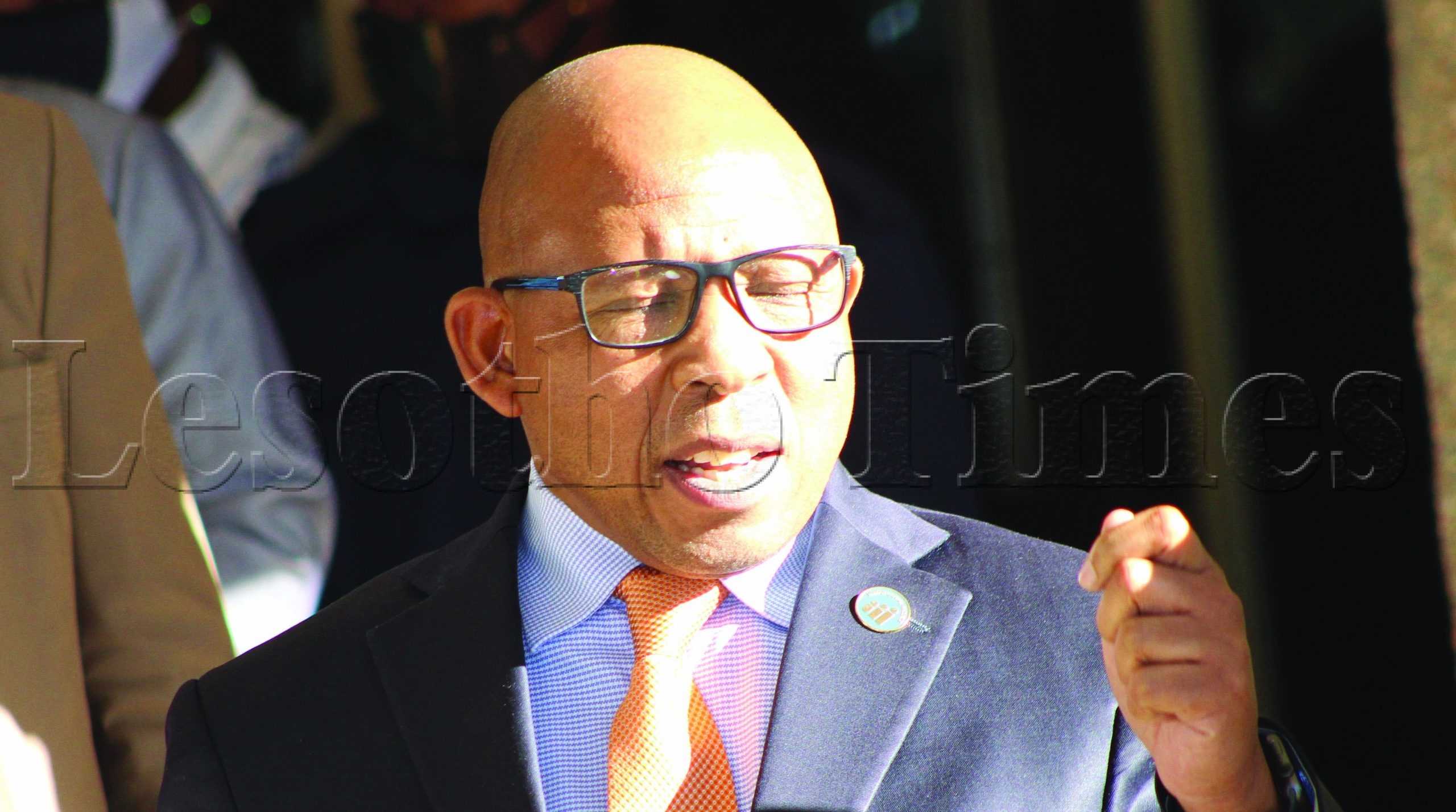Nthatuoa Koeshe
PRIME Minister Moeketsi Majoro has established several inter-ministerial committees to address various challenges including the instability in the security agencies.
The move comes against the background of infighting within the police force pitting Police Commissioner Holomo Molibeli against his subordinates in the Lesotho Mounted Police Service Staff Association (LEPOSA).
LEPOSA is a trade union body representing all police officers. It has petitioned Dr Majoro to suspend Commissioner Molibeli to facilitate investigations into the latter’s alleged criminal misconduct, maladministration and abuse of power.
The police boss has hit back by initiating moves to fire LEPOSA members who he brands as “rogue” police officers out to derail the police force from doing its work. He has also accused some of his subordinates of “engaging in an open rebellion against the police management”.
Pressure had been mounting on Dr Majoro to act or risk a full-blown crisis which could plunge the nation into another era of anarchy reminiscent of the 2014 to 2017 period. During that time infighting in the army destabilised the country and led to the assassinations of army commanders, Maaparankoe Mahao and Khoantle Motšomotšo, June 2015 and September 2017 respectively.
Although, it did not specifically mention the police tensions, a statement issued by Dr Majoro’s office yesterday said “in order to manage emerging crises and issues of public interest…the Office of the Prime Minister has established a committee to investigate potential instability in the security agencies”.
“Some members of the security forces have expressed grievances regarding their workplaces and it is important to ascertain the veracity of these claims as well as exploring solutions,” the statement says.
It states that the committee to investigate the “potential instability comprises of ministers ‘Mamoipone Senauoane (Police and Public Safety), Prince Maliehe (Defence and National Security), Kemiso Mosenene (Prime Minister’s Office) and Professor Nqosa Mahao (Law and Justice)”.
The statement says an inter-ministerial committee has also been set up to investigate the trafficking of people.
“There are indications that Lesotho is experiencing escalating trafficking in persons. Owing to this, the United States has cautioned Lesotho that this might affect negotiations for the second Millennium Challenge Compact.
“Secondly, trafficking in persons is a serious crime that violates the rights of the trafficked people. The purpose of this committee is to understand the depth of problem and formulate a strategy to effectively eliminate this crime in Lesotho, including to investigate and prosecute people involved in this heinous crime,” the statement says.
The committee investigating trafficking includes ministers Senauoane, Mr Maliehe, Prof Mahao, ‘Matebatso Doti (Social Development), Keketso Rantšo (Labour and Employment), ‘Matšepo Ramakoae (Foreign Affairs and International Relations) and Motlalentoa Letsosa (Home Affairs).
Besides these, a Covid-19 taskforce has also been established to “steer the fight against Covid-19 infections and to oversee the formulation and implementation of strategies against the virus”.
This in addition to the already existing National Covid-19 Secretariat (NACOSEC) headed by Lesotho Revenue Authority (LRA) Commissioner General Thabo Khasipe.
A National Reforms Steering Committee has also been set up to support and expedite the completion of Lesotho’s multi-sector reforms that were recommended by the Southern African Development Community (SADC) in 2016.
The statement indicates that various standing committees have been established including a finance and development committee, an investment promotion committee and an infrastructure committee.
“The primary purpose of the finance and development committee is to provide guidance or strategic direction through alignment of budgets and monitoring budgetary and operational performance to fulfil management obligations in respect of efficient and effective use of government resources.
The investment promotion committee aims to support private investment by “removing roadblocks to investment and job creation”.
The infrastructure committee seeks to support the development of infrastructure such as roads, electricity and communications.
The various committees shall report to the cabinet on a regular basis and the prime minister’s office shall also monitor the work of the committees, the statement says.

